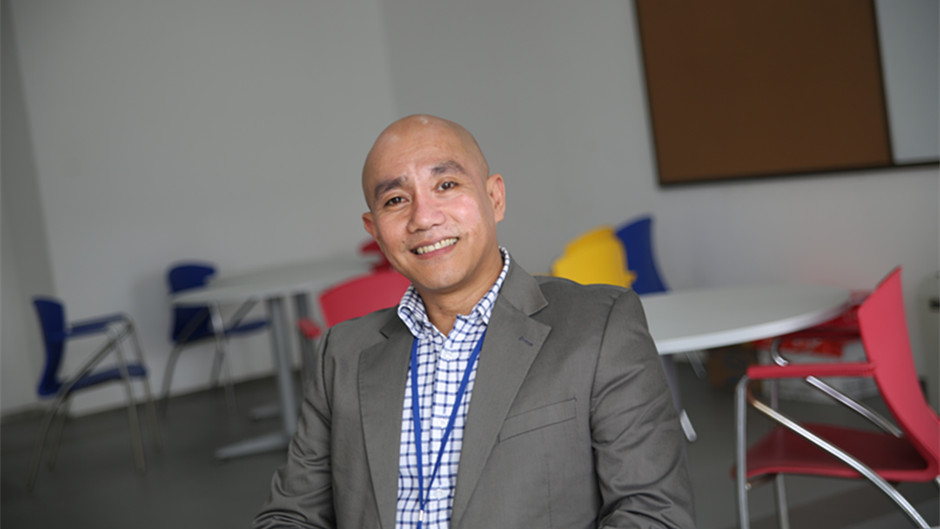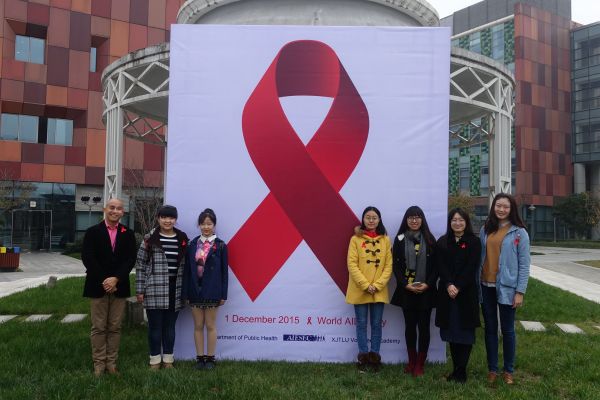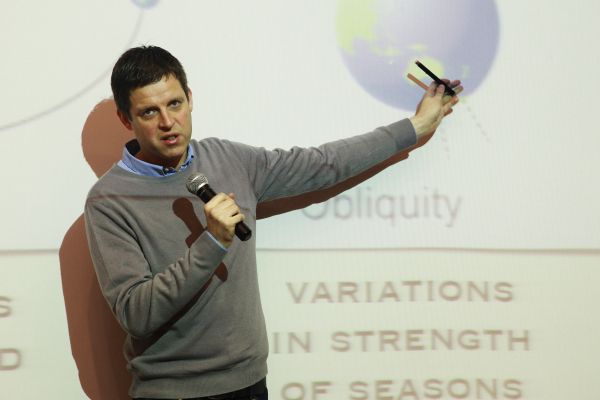08 Jun 2016
The maps on the walls, coupled with the gifts and artifacts from far-flung places that decorate Dr Don Prisno’s office at Xi’an Jiaotong-Liverpool University are the physical indicators of a life and career that’s taken Don all over the world, working in, and researching, global health.
An associate professor in the Department of Public Health at XJTLU, Don’s research covers a range of global health and public health issues, including public health education, health, welfare and development, health economic and financing, sexual and reproductive health, gender, occupational health, disasters, and the translation of health research to policy and practice.

He is particularly drawn to the types of projects and issues that are having global impact and that force countries to work together to find solutions.
“The determinants of health are global,” he says. “It’s not just that diseases, such as zika and ebola, spread so easily around the world, but also that countries now no longer stand on their own to tackle these huge worldwide health issues. Migration, trade, climate change, disasters all impact on people’s health so it’s about understanding that things are not isolated and that the world needs to work together to come up with frameworks for cooperation.”
An international career
Don began his working life as a doctor in the Philippines, where he was born and grew-up, before a career-long interest in public health issues and policy work saw him pursue a PhD in global health at Cardiff University, which he completed in 2013.
“I realised that through policy development work I could effect change and contribute to global discussions,” says Don. “My professional field experience as a doctor, however, helps a lot when looking at the types of health issues that particularly affect developing countries.”
His professional and personal background also means he has first-hand experience of the kinds of global health issues he is researching – he lost relatives and friends in the 2013 Typhoon Haiyan disaster in central Philippines and had to witness his then 87-year-old grandmother, a veteran of many typhoons, struggle to survive amid the “stench of death and destruction”.
“Of course, when you discuss global issues, you also discuss local issues because they’re interconnected,” he says. “It’s crucial to understand that the big global discussions and decisions that take place ultimately affect real people’s lives and their health, and as a researcher that’s gratifying but also a huge responsibility.”
The global nature of his work has continued since he came to XJTLU in 2014 to join what would become a department of fellow public health researchers whose work all takes place on the international stage.
Don’s academic work is increasingly being recognised in the Asia-Pacific area, helping to boost XJTLU’s reputation as a leader in global public health in the region.
Refugee crisis in Europe
Along with an appointment as an adjunct at the London School of Hygiene and Tropical Medicine, a recent fellowship at the Ludwig Maximillian University of Munich saw Don chair a major conference on the Europe-wide public health challenges of the migration of Syrian refugees.
“That conference was significant,” explains Don. “Because it was the first time discussions have focussed on the impacts on health of the migration, rather than the politics.”
Academics and health practitioners came together for the one-day event to share data illustrating the real effects of the migration on health systems across Europe. During the conference it became clear that health systems are not prepared for the impact of the migration and that more needs to be done to improve these systems.
“It was a shock for Europe,” says Don, “that these millions of migrants began coming. There are simply not enough doctors for all these people and they are not familiar with all the diseases migrants bring with them.”
It’s not just high-level academic conferences that Don is organising to spread knowledge and learning that can bring about change on a global scale.
For the past three years, he’s delivered training to thousands of doctors, health professionals and academics around the world with a view to developing future leaders on global health, equipped with the critical thinking, knowledge and communication skills needed to effect change.
“There are many issues in global health that we do not just accept, that we need to discuss, dissect and debate,” he explains. “You need critical thinkers who are able to look at the issues and question things rather than just accept the way things are.”
The training programme, which has been delivered Southeast and Central Asia as well as Africa and parts of Europe, aims to bring learning in global health to the developing world with a view to addressing the imbalance in knowledge that exists between developed and developing nations.
And equality, says Don, is ultimately what global health practitioners and researchers are striving for, trying to create a world where resources are adequately allocated to those marginalised, poor populations who need more and who are more impacted by disasters.
“Equity is the central focus of global health,” says Don. “When people have fairer access to resources, their health improves. My work with people around the world, developing their critical thinking skills, is about pushing for more health equality to make the world a healthier place for all.”
Study public health at XJTLU
The Department of Public Health’s BSc Public Health is one of the most comprehensive undergraduate public health degrees in the world. Taught classes, applied coursework, field trips, projects and internships provide students with the practical and theoretical tools that are essential to fostering the health of local and international populations.
Students are taught by experienced international staff, such as Don Prisno, whose research is brought directly into the classroom providing an exceptional education experience that combines theory with the most current knowledge in public health.
08 Jun 2016
RELATED NEWS

XJTLU students and staff observe World AIDS Day
The number of new HIV infections and deaths as a result of the condition are in decline globally, but there are still major challenges with the AIDS epide...
Learn more

More disasters if climate change not addressed
A researcher at Xi’an Jiaotong-Liverpool University has warned of more frequent and stronger natural disasters if climate change is not addressed. Dr Do...
Learn more

‘Mankind responsible’ say experts at climate event
Mankind is responsible for temperature rises on Earth but it also the key to finding a solution to climate change. That was the overwhelming message o...
Learn more








